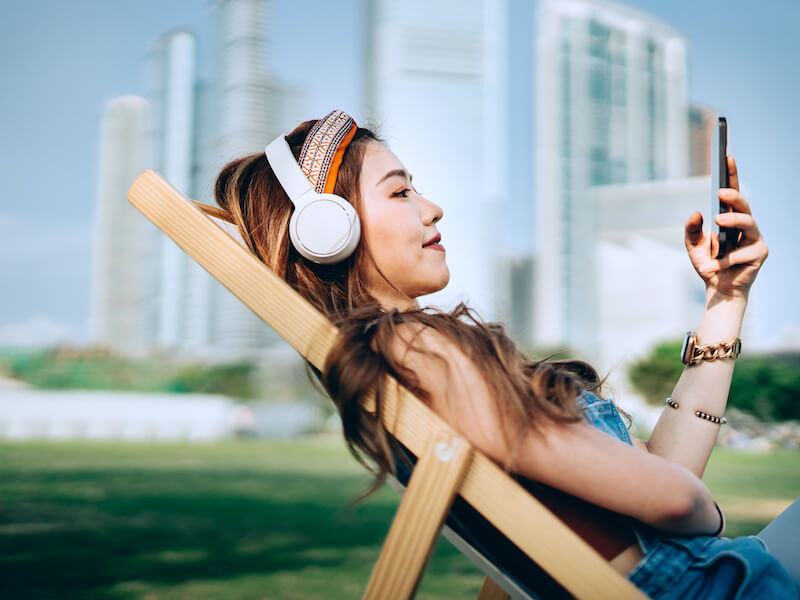
Music is a major part of Aiden’s life. While he’s out jogging, he’s listening to Pandora, while working it’s Spotify, and he has a playlist for everything he does: cardio, cooking, gaming, you name it. His headphones are just about always on, his life a totally soundtracked affair. But permanent hearing damage may be happening due to the very loud immersive music he loves.
For your ears, there are healthy ways to listen to music and unsafe ways to listen to music. But the more dangerous listening option is usually the one most of us use.
How can listening to music cause hearing loss?
Your ability to hear can be compromised over time by exposure to loud noise. Normally, we think of aging as the principal cause of hearing loss, but the latest research is discovering that hearing loss isn’t an intrinsic part of getting older but is instead, the outcome of accumulated noise damage.
It also turns out that younger ears are particularly vulnerable to noise-related damage (they’re still growing, after all). And yet, the long-term damage from high volume is more likely to be dismissed by younger adults. So there’s an epidemic of younger individuals with hearing loss thanks, in part, to high volume headphone use.
Can you listen to music safely?
It’s obviously hazardous to enjoy music at max volume. But simply turning the volume down is a less dangerous way to listen. Here are a couple of general recommendations:
- For adults: Keep the volume at less than 80dB and for no more than 40 hours per week..
- For teens and young children: You can still listen for 40 hours, but keep the volume level below 75dB.
Forty hours per week translates into roughly five hours and forty minutes a day. That seems like a lot, but it can go by fairly quickly. Even still, most individuals have a fairly sound concept of keeping track of time, it’s something we’re taught to do efficiently from a really young age.
The harder part is monitoring your volume. On most smart devices, smartphones, and televisions, volume is not measured in decibels. Each device has its own arbitrary scale. Perhaps it’s 1-100. Or it could be 1-10. You might have no clue what the max volume is on your device, or how close to the max you are.
How can you listen to music while monitoring your volume?
It’s not very easy to know how loud 80 decibels is, but fortunately there are a few non-intrusive ways to know how loud the volume is. Differentiating 75 from, let’s say, 80 decibels is even more perplexing.
So using one of the numerous noise free monitoring apps is highly recommended. These apps, generally available for both iPhone and Android devices, will provide you with8 real-time readouts on the noises surrounding you. In this way, you can make real-time alterations while monitoring your actual dB level. Or, when listening to music, you can also adjust your configurations in your smartphone which will efficiently let you know that your volume is too loud.
As loud as a garbage disposal
Generally, 80 dB is about as noisy as your garbage disposal or your dishwasher. That’s not too loud. It’s an important observation because 80dB is about as loud as your ears can take without damage.
So you’ll want to be extra aware of those times when you’re moving beyond that decibel threshold. And minimize your exposure if you do listen to music over 80dB. Maybe limit loud listening to a song rather than an album.
Listening to music at a higher volume can and will cause you to have hearing issues over the long run. Hearing loss and tinnitus can be the outcome. The more you can be cognizant of when your ears are going into the danger zone, the more informed your decision-making will be. And safer listening will hopefully be part of those decisions.
Give us a call if you still have questions about keeping your ears safe.
